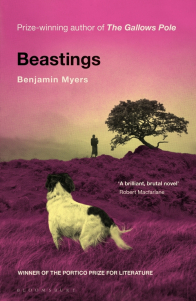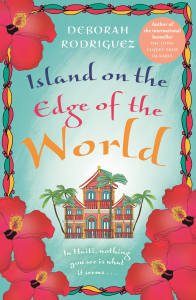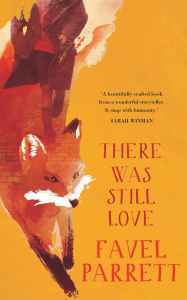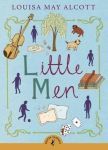Theresa Smith's Blog, page 90
November 10, 2019
Book Review: The Complete Works of William Shakespeare
By now, regular readers will have gotten wind that I’m a Shakespeare tragic. Combine this with my love of collecting beautiful books, and you get this:
[image error]
The Complete Works of William Shakespeare is an elegant edition boasting the entire credited catalogue of William Shakespeare including 16 comedies, 10 histories, 12 tragedies, as well as all of his poems and sonnets.
Be still my beating heart. This book is indeed beautiful, but even better, it has all of Shakespeare’s work, and while it’s far from compact and not even a little bit portable, it has presence: a stately hardcover, elegant end papers, and a thick ribbon bookmark (trust me – these things matter to a book collector). The text is presented in the traditional two column format which appeals to the traditionalist in me. There’s a short introduction at the front and a short life and times of Shakespeare at the back, but other than this, it’s all Shakespeare, not someone else’s reinterpretation, not a whole heap of ‘translated’ meanings, and no deconstructed text analysis – just The Bard, in his own words, as they were always intended to be appreciated.
[image error]
Now, clearly, I’m not going to sit down and read this book from cover to cover and review it in the usual way. This is more of a dip in and dip out kind of book, so I thought I’d just tell you all about the edition itself, just in case you were thinking about acquiring a collection of Shakespeare for yourself or to give as a literary gift. I highly recommend this one from an aesthetic point of view. And besides, Shakespeare is above review – his work speaks for itself.
‘But Shakespeare does not simply deliver eternal truths from on high, despite being the most quoted poet in history. His writing is like one side in the best imaginable conversation. To access the riches in Shakespeare’s writing, readers, performers, and audiences need to bring their own experience and their own imaginations to bear, to converse with what they see and hear. The works then come alive, in different ways in different places and times, but always with the potential for astonishing creativity.’ – Introduction by John Lotherington





Thanks is extended to The Quarto Group (via Allen & Unwin) for providing me with a copy of The Complete Works of William Shakespeare for review.
The Complete Works of William Shakespeare
Published by The Quarto Group – Rock Point
Released 1st October 2019
Buy from Booktopia
November 8, 2019
#BookBingo – Round 23
I Have a Bed Made of Buttermilk Pancakes by Jaclyn Moriarty
Lent to me by a friend at work, I Have a Bed Made of Buttermilk Pancakes was a novel I hadn’t even heard of. But I read Gravity is The Thing earlier this year and loved it and lending that led me to having this one lent to me. I love the book universe!
[image error]
Truly original and so much fun with a fair bit of poignancy thrown into the mix. Jaclyn writes with an emphasis that jumps right off the page along with well-timed irony and plenty of humorous instances of stating the obvious – even if it is only with introspect. It is quintessentially Australian without any stereotypes and it dates very well – almost a classic in the making. At the heart of this novel is a mystery like no other and it amused me greatly once all the pieces of this charmingly puzzling book began to fall into place.
[image error]
For 2019, I’m teaming up withMrs B’s Book Reviews and The Book Muse for an even bigger, and more challenging book bingo. We’d love to have you join us. Every second Saturday throughout 2019, we’ll post our latest round. We invite you to join in at any stage, just pop the link to your bingo posts into the comments section of our bingo posts each fortnight so we can visit you. If you’re not a blogger, feel free to just write your book titles and thoughts on the books into the comments section each fortnight, and tag us on social media if you are playing along that way.
November 7, 2019
The Week That Was…
Next week: CRAZY TOWN! Graduation week for my daughter and my students. We’ve got ceremonies galore and I’ve got two formals, one Friday night (for my students) and one Saturday night (for my daughter). It’s going to be fun!!! 
November 6, 2019
#TBT What I Was Reading a Year Ago…
One of my favourites for #tbt this week:
[image error]
A year ago I was reading Unsheltered by Barbara Kingsolver, which I absolutely loved. My admiration for this latest novel by one of my favourite authors reached Barbara herself as she was doing an Australian tour at the time my review published. Imagine my delight when this arrived in the mail a couple of weeks later:
[image error]
[image error]
#BookishMoments 
November 5, 2019
Book Review: Beastings by Benjamin Myers
About the Book:

Winner of the Portico Prize for Literature and the Northern Writers’ Award
A girl and a baby. A priest and a poacher. A savage pursuit through the landscape of a changing rural England.
When a teenage girl leaves the workhouse and abducts a child placed in her care, the local priest is called upon to retrieve them. Chased through the Cumbrian mountains of a distant past, the girl fights starvation and the elements, encountering the hermits, farmers and hunters who occupy the remote hillside communities. An American Southern Gothic tale set against the violent beauty of Northern England, Beastings is a sparse and poetic novel about morality, motherhood and corruption.
My Thoughts:
I watched a film earlier this year called Brimstone starring Guy Pearce and Dakota Fanning and it was seriously grim, but also a really great example of the darker side of historical fiction, utterly horrifying yet one of those films where you still felt compelled to watch right until the very end. Early on while reading Beastings, this film came to mind as this novel really reminded me of many aspects of Brimstone and that same compulsion to just keep on reading mirrored the way I felt while watching that film. Fortunately though, I did enjoy the novel Beastings a whole lot more than I enjoyed the film Brimstone.
Make no mistake though, Beastings is grim. Literary historical fiction that is a dark descent into a horrifying game of cat and mouse between a priest and a young teenage girl who has turned herself into a fugitive by stealing her employer’s baby. But it’s also so much more than this – it’s also a really deep examination of morality and while it’s uncomfortable at times to read, Benjamin Myers writes with such stunning prose. He has an interesting style whereupon he writes without the use of commas or narrative punctuation. You might think at first that this wouldn’t work, that the text would be too dense without any breaks. But for some reason, it just lent itself to this poetic quality that combined with the mood of the story and the setting to perfection – dark themes depicting the more depraved side of human nature coupled with poverty, deprivation and abuse; Benjamin really has combined style, setting, and theme brilliantly, and the end result is a novel of literary power and impact.
The story is set up on the fells in Northern England and while the author doesn’t specify which historical era he’s using, I got a sense that it was possibly post Victorian, pre turn-of-the-century. The story opens with the girl – who is how she is referred to throughout the novel, although she does have a name and we do find it out, the author only refers to her as the girl, in the same was as the baby is the bairn, the priest is the priest, and the poacher is the poacher. For the priest, the use of this title seemed to convey more rigid power than referring to him as Father and then his name, as is customary with a priest. However, for the other characters, the lack of using a name conveyed the opposite, demonstrating how utterly powerless they really were. An important distinction that weighed on my mind as the story progressed.
‘And privileges were the church’s way of rewarding those chosen to do God’s work. Small rewards for a great task: shepherding the sheep into His fold.’
So, back to the beginning with the girl, who is on the run with her employer’s baby. The father of the baby has gone to the town priest to see if the priest can get his child back. An odd choice, you’d think he might have gone to the police, but the girl came to the employer via the local church run workhouse and I suppose he felt that finding her needed to be made their problem given that they provided her to his household. We quickly ascertain that the priest has a more sinister interest in this girl. He engages a poacher as a tracker and immediately sets out to find her, not informing the police of the abduction at all. It doesn’t take long for us to realise that he’s not interested in the fate of the baby. He wants the girl because he has, probably for her entire life within the workhouse, sexually abused her, although it’s inferred that this abuse goes beyond that, to a whole other extremely depraved level. Concurrently, she’s also been the recipient of physical, mental and emotional abuse by the sisters who run the workhouse, in a macabre sort of hate filled punishment for the abuse she’s subjected to at the hands of the priest. This horrible, vile cycle has clearly left this poor girl so disturbed, little wonder she’s run away, but why has she taken the baby?
‘The baby was hers now. She would set it free far away from that town half-mad under his rule. Back there it wouldn’t stand a chance – not with the feckless Hinckley as a father and his dying wife as a mother. Soon she would be dead and buried and Hinckley wouldn’t cope and then the Father and the Sisters would intervene and before anyone knew it he would have his teeth in the child. Him. The Priest. Sucking the life out of the young to leave them spent and scared or silent. And on it would go. But not this time. No. This way there was still hope.’
There is so much sadness within this novel, along with truly awful and horrific abuses of power. Much of it is also an examination of motherhood and the lengths that a woman will go to in order to protect the one they are mothering, even if they are not the natural mother. The priest himself is so vile, absolutely horrendous and entirely appears to feel as though he is above reproach. That everything he does is his God given right and that he is superior to all other people. Second to God, is how he views himself. The poacher who is acting as guide for the priest was quite an interesting character. Not being a church person or even someone who believes in God, he had no qualms about calling the priest to task on what appeared to him as a wildly obsessive hunting mission aimed at finding the girl rather than the baby. He also felt free to question rumours he’d heard over time in town and while he might not be the sharpest tool in the box, he manages to put two and two together rather swiftly, demonstrating just how arrogant the priest was. He truly believed that his actions would be invisible simply because he wanted them to be. Because he was the priest, so no one had the right to question him, even when his actions were glaringly transparent.
‘She held these things over him. He knew it and she knew it. She had that power. That was why she had to be stopped contained confined. Watched over. The child was his excuse; his justification. He didn’t care about some stupid mewling baby – the world was full of them. He cared about his status. He cared about his Freedom he can about keeping her mute and passive and under his control. He cared about keeping all of them mute and passive and under his control though she was the first to flee.’
This novel really is one where I just want to go straight to the ending and dig in, really analyse it to pieces, but of course, then that would take an experience from you that is vital to decoding this novel. You really do not want the ending spoilt. However, there are such interesting questions of morality at the end of the novel, the apex of which stems from this: What is more important? A condemned life or freedom through death? At what point does protection become endangerment? Rarely have I seen these themes and questions raised quite so dramatically as they were within this novel and while I was stunned and absolutely filled with disbelief by what happens in the end, so much so, that I went back and re-read the last few pages, I could all of a sudden see with absolute clarity what the whole point of the ending was. Like I said at the beginning of this review, this is a grim novel, there is no rainbow at the end of the storm, just more muck and gore. I don’t want you to think that it gets better because it really doesn’t: it starts grim, the middle is grim, and the end is grim. And yet, I simply couldn’t stop reading it. It’s the kind of novel that is still playing on my mind and is still haunting me days after finishing it. What Benjamin Myers has written about in this novel is in some ways a familiar history, but the demonstrative effect on the characters is what he’s really mastered here, particularly the lasting effect on the girl. Honestly, in my opinion, he’s just done a superb job with this novel.
‘You’re the lucky one the Sisters had said. Being tapped the way you are. That was the way God wanted and don’t you dare to doubt that. Father chose you because you were the quiet one. No other reason but that. He said you’d never be guilty in the language of gossip or hearsay; said the silent can always be trusted because God took their tongues and made them blessed. Said they were gifted in discretion. Receptacles for The Truth. You should consider yourself lucky; your debt to Father is great.
She felt that debt about her now like the ox feels the yolk.’
Benjamin came to my notice earlier this year when his novel The Gallows Pole won the Walter Scott Prize for historical fiction. I had read an interesting review about that novel so I was keen to read this one when it was sent to me, and I really am glad that I have, despite its darkness. If you have enjoyed reading the novels of Hannah Kent, Burial Rites and The Good People, I think you would really appreciate Beastings. It’s got that same literary feel to it, history of the marginalised, stripped back to its grim heart, leaving you with vivid lasting impressions of the story and the characters. The stylistic decisions made by the author also offers a very literary feel to the narrative. Maybe an element that is not to some reader’s tastes, and believe it when I say, I’m a punctuation queen, but honestly, the lack of it within this novel didn’t phase me, instead, I can see how it enhanced the actual complete narrative. All in all, I do really recommend Beastings, but with caution, depending upon the type of reader you are and what mood you’re in. If you are a fan of literary historical fiction, especially the kind that shows the darker side of human nature, which also has that tangible build of suspense, dread, and the unexpected, then Beastings might fit the bill for you.




Thanks is extended to Bloomsbury Publishing for providing me with a copy of Beastings for review.
About the Author:
Benjamin Myers was born in Durham in 1976. His novel The Gallows Pole received a Roger Deakin Award and won the Walter Scott Prize for historical fiction. Beastings won the Portico Prize for Literature and Pig Iron won the Gordon Burn Prize, while Richard was a Sunday Times Book of the Year. He has also published poetry, crime novels and short fiction, while his journalism has appeared in publications including, among others, the Guardian, New Statesman, Caught by the River and New Scientist.
He lives in the Upper Calder Valley, West Yorkshire.
benmyers.com / @BenMyers1
[image error]
Beastings
Published by Bloomsbury Publishing
Released 5th November 2019
November 4, 2019
#BlogTour: Island on the Edge of the World by Deborah Rodriguez
About the Book:

From the author of the international bestseller The Little Coffee Shop of Kabul, comes a captivating story set in the colourful but chaotic land of Haiti, as four very different women work together to find a lost child.
Haiti. A poor country rich in courage, strength and love. As these four women are about to discover.
Charlie, the rootless daughter of American missionaries, now working as a hairdresser in Northern California. But the repercussions of a traumatic childhood far from home have left her struggling for her way in life.
Bea, Charlie’s eccentric grandmother, who is convinced a reunion with her estranged mother will help Charlie heal.
Lizbeth, a Texas widow who has never strayed too far from home. She is on a daunting journey into the unknown, searching for the grandchild she never knew existed.
And Senzey, a young Haitian mother dealing with a lifetime of love and loss, who shows them the true meaning of bravery.
Together they venture through the teeming, colourful streets of Port-au-Prince, into the worlds of do-gooders doing more harm than good, Voodoo practitioners, artists, activists, and everyday Haitian men and women determined to survive against all odds.
For Charlie, Bea, Lizbeth and Senzey, life will never be the same again.
My Thoughts:
I always enjoy fiction that takes me to far-flung places. In Island on the Edge of the World, Deborah Rodriguez takes her readers through the streets of Port-au-Prince, the capital of Haiti, one of the most densely populated, least developed, and poorest countries in the Western Hemisphere. Her affection for this country along with her knowledge about it was evident throughout. This novel has a lively and realistic atmosphere and it was refreshing to learn about another country whilst reading such an engaging story.
Island on the Edge of the World is fiction with a social conscience, something I regard highly and often look for in a book. The characters were well fleshed out, their interactions with each other realistically represented. Personally, I liked the more spiritual side of the story, particularly the parts that elaborated on Voodoo: what it is, what the myths are, and what it means to everyday Haitians. As is often the way with commercial fiction, the story does tie up very neatly and there is more of a happily ever after than what you might suppose for a story set in Haiti, but I’ll forgive it this on account of how splendidly entertaining it was in its entirety.
I highly recommend Island on the Edge of the World to readers of all tastes. I think it would make a fabulously entertaining movie, both in its storyline and the more serious themes it conveys – I am just not sure about the feasibility of filming in Haiti. However, you never know, no harm comes from hope!




Thanks is extended to Penguin Random House Australia for providing me with a copy of Island on the Edge of the World for review.
About the Author:
Deborah Rodriguez is the author of the international bestsellers The Little Coffee Shop of Kabul and Return to the Little Coffee Shop of Kabul. She has also written two memoirs: The Kabul Beauty School, about her life in Afghanistan, and The House on Carnaval Street, on her experiences following her return to America. She spent five years teaching and later directing the Kabul Beauty School, the first modern beauty academy and training salon in Afghanistan.
Deborah also owned the Oasis Salon and the Cabul Coffee House, and is the founder of the non-profit organization Oasis Rescue, which aims to teach women in post-conflict and disaster-stricken areas the art of hairdressing.
She currently lives in Mazatlán, Mexico, where she owns Tippy Toes salon and spa.
[image error]
Island on the Edge of the World
Published by Penguin Random House Australia – Imprint: Bantam Australia
Released 5th November 2019
#IslandontheEdgeoftheWorld #BlogTour
[image error]
November 2, 2019
Book Review: There Was Still Love by Favel Parrett
About the Book:

A tender and masterfully told story of memory, family and love.
Prague, 1938: Eva flies down the street from her sister. Suddenly a man steps out, a man wearing a hat. Eva runs into him, hits the pavement hard. His hat is in the gutter. His anger slaps Eva, but his hate will change everything, as war forces so many lives into small, brown suitcases.
Prague, 1980: No one sees Ludek. A young boy can slip right under the heavy blanket that covers this city – the fear cannot touch him. Ludek is free. And he sees everything. The world can do what it likes. The world can go to hell for all he cares because Babi is waiting for him in the warm flat. His whole world.
Melbourne, 1980: Mala Liska’s grandma holds her hand as they climb the stairs to their third floor flat. Inside, the smell of warm pipe tobacco and homemade cakes. Here, Mana and Bill have made a life for themselves and their granddaughter. A life imbued with the spirit of Prague and the loved ones left behind.
Favel Parrett’s deep emotional insight and stellar literary talent shine through in this love letter to the strong women who bind families together, despite dislocation and distance. It is a tender and beautifully told story of memory, family and love. Because there is still love. No matter what.
My Thoughts:
There Was Still Love is a deeply moving little novel, its story less of a story and more of a snapshot of life within one family, as conveyed through the eyes of two children: Ludek, who lives in Prague, and Mala Liska, who lives in Melbourne. Both children are being brought up by their grandmothers who are twin sisters living on opposite sides of the world. The novel alternates between Melbourne and Prague, allowing the reader to not only get a feel for this family, but also a bead on what life itself is like for each family within the place they reside. Given the novel is narrated by children, there is a surprising amount of insight conveyed, both socially and politically. Between each shift from Melbourne to Prague are memories, inserted to show the experiences of each adult character and how these have shaped them into the person they are in the present day.
“I did not know what the word wog meant, but I knew that it felt like a giant spotlight suddenly shone on my grandma to make sure that everybody knew she did not belong. To make sure she felt ashamed of her accent, ashamed of her face, ashamed of the way she loved the taste of caraway seeds in her light rye bread.”
I grew up in the 1980s, and like Mala Liska, I was, for the most part, cared for by my maternal grandparents, who were European migrants. I found There Was Still Love to be an achingly nostalgic read, sometimes almost too much so, reminding me of all that is now gone since the deaths of my beloved grandparents. Don’t be fooled by the childlike observations and daily miniature that fill the pages of this novel. The apparent simplicity is but a veneer for the depths beneath. This is, however, a quiet novel. Literary fiction that is entirely about the characters only: who they are, how they interact with each other, how their experiences have shaped them, how the communities in which they live in affect them. There is no plot, no build up to something more; it just is. You begin in the same place you end, but somehow richer for the insight it offers. I can’t think of any other way to describe the novel other than in this manner.
“Babi’s hand was on his shoulder now. It was warm and solid and he felt her take it all like always – take the weight, the bad feelings. They lifted off him and sunk down into her large body. They became solid in her flesh.
‘Okay,’ Babi said after a while. ‘Go and wash up.’
Ludek paused in the doorway. He looked at her – his babi. All those years of carrying so much. All the years of being stuck and having to keep everything going. And he knew that Babi held it all so that he did not have to. Babi held it all so that he could stay free.”
I loved how the author showed connections between the characters via traditions. Mala Liska and Ludek had never met, yet it was precious to read about them both liking the cream from the cucumber salad – little connections across space and time that can exist within families even when their members are apart, or, as is the case here, physically unknown to each other. Once again, I was reminded of meeting family members from Belgium and delighting in our preferences for the same food, prepared the same way. Meeting each other for the first time wearing the same custom-made earrings. This level of family connection is not something I’ve come across in a novel before and it was richly rewarding to discover it within this one.
There Was Still Love is a slim novel, but it’s brimming with heart and feeling. A great one for those who enjoy character driven narratives and literary fiction.




Thanks is extended to Hachette Australia for providing me with a copy of There Was Still Love for review.
About the Author:
[image error]
In 2011, Favel Parrett’s career was launched with her critically acclaimed debut PAST THE SHALLOWS. A heart-breaking novel, it was sold internationally, shortlisted in the prestigious Miles Franklin Award and won the Dobbie Literary Award. Favel herself won the ABIA Newcomer of the Year Award in 2012. Her next novel, WHEN THE NIGHT COMES, was also critically acclaimed and further consolidated Favel’s reputation with booksellers and readers. Favel’s short stories have been published in various journals including Island, Griffith Review and Wet Ink. THERE WAS STILL LOVE is Favel’s eagerly awaited third novel.
For more information, visit favelparrett.com.au or twitter.com/favelparrett.
[image error]
There Was Still Love
Published by Hachette Australia
Released 24th September 2019
November 1, 2019
Six Degrees of Separation from Alice’s Adventures in Wonderland to The Mysterious Affair at Styles…
It’s the first Saturday of the month which means a new round of #6degrees and this month’s starting book is Alice’s Adventures in Wonderland by Lewis Carroll.
You can find the details and rules of the #6degrees meme at booksaremyfavouriteandbest, but in a nutshell, everyone has the same starting book and from there, you connect to other books. Some of the connections made are so impressive, it’s a lot of fun to follow.
My first link is the easiest and most obvious: Through the Looking Glass by Lewis Carroll, which is of course, the second Alice book. While modern editions almost always have the novels combined, they were originally published six years apart. 1871 was the year Through the Looking Glass was published, which is the same year as another second book: Little Men by Louisa May Alcott. It’s technically the second book as Good Wives (next link) was published as a second volume of the first book, Little Women (and there’s another link), and is now, for the most part, considered as the second half of Little Women. 1868 was the year Little Women was published, along with another notable release: The Moonstone by Wilkie Collins, which is known as the first modern English detective novel. Which brings me to my last link: The Mysterious Affair at Styles, the first novel by Agatha Christie, the Queen of English detective novels. Published in 1920, it introduced the detective Hercule Poirot, who we all know, popped up many more times over the course of her writing career.







And that’s my chain: from Alice to Poirot – I didn’t pick that one when I first sat down to put this together!
Until next month’s #6degrees…
October 31, 2019
My Reading Life: Falling Down the Rabbit Hole of Alice’s Adventures in Wonderland and Through the Looking Glass by Lewis Carroll
This week I’ve been revisiting Alice’s Adventures in Wonderland and Through the Looking Glass in preparation for November’s #6degrees. I don’t tend to review books twice, so instead, I thought I’d dust off this reflection I wrote a couple of years ago and re-share. It all still holds true!
Today I’m talking about how I fell down the rabbit hole of Alice’s Adventures in Wonderland and Through the Looking Glass by Lewis Carroll, and why I stayed there.
I’ve always been rather partial to quirk. Quirky stories, quirky movies, quirky songs, quirky TV shows. If it’s a little bit weird or a little bit out there, then there’s a good chance that I’ll like it. I’ve had this trait for as long as I can remember and I have no doubt that this predilection for anything odd is what drew me to Alice’s Adventures in Wonderland in the first place.
As a child, I was always on the scrounge for books to read. My Pop was a bit of a reader and he had this cabinet on the porch which was chockers full of old books. Seriously old books, with pages that had gone far beyond the point of…
View original post 1,385 more words
The Week That Was…
It definitely feels like I’m stuck on a treadmill going the wrong way this week…
Nearly there though! Today is my daughter’s last day of classes for year 12. One exam next week and then she’s done with school work. Official graduation date is the 15th November with the formal on the 16th. It’s non-stop ‘stuff’ from now on though, so reading might be sporadic – much to my ire. I can hardly believe that one of my children is done with school. Here she is right back at the beginning:
[image error]
As much as I hate saying it…time really does fly!
~~~~
Joke of the week:
[image error]
~~~~
Book of the Week:
[image error]
~~~~
What I’ve been watching:
[image error]
This is very interesting viewing. It’s a series, but each of the eight episodes are stand-alone stories, linked only by the fact they are set in New York. It’s based on an essay series titled ‘Modern Love’ that is published by the NY Times. Really, they are like novellas brought to life on the small screen, each episode like a short film. I’m really enjoying it. It’s different and heartfelt, exploring all types of love, not just romantic.
~~~~
What I’m reading right now:
[image error]
Thought I’d revisit ahead of Saturday’s #6degrees!
~~~~
Until next week…




